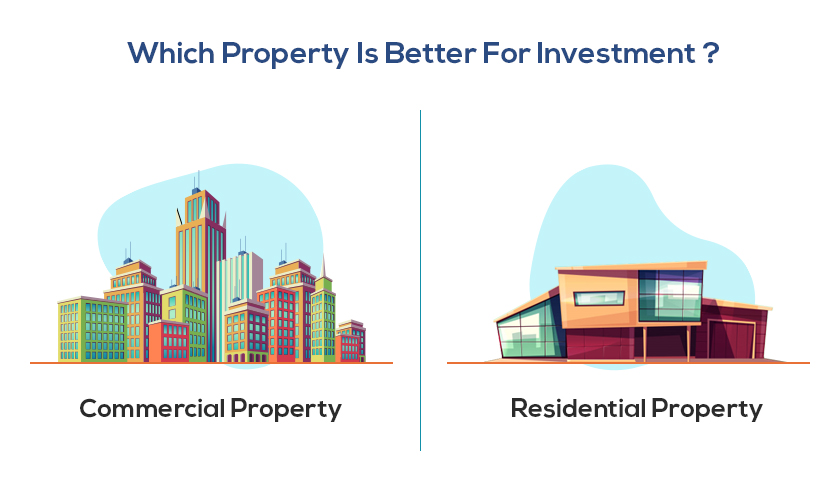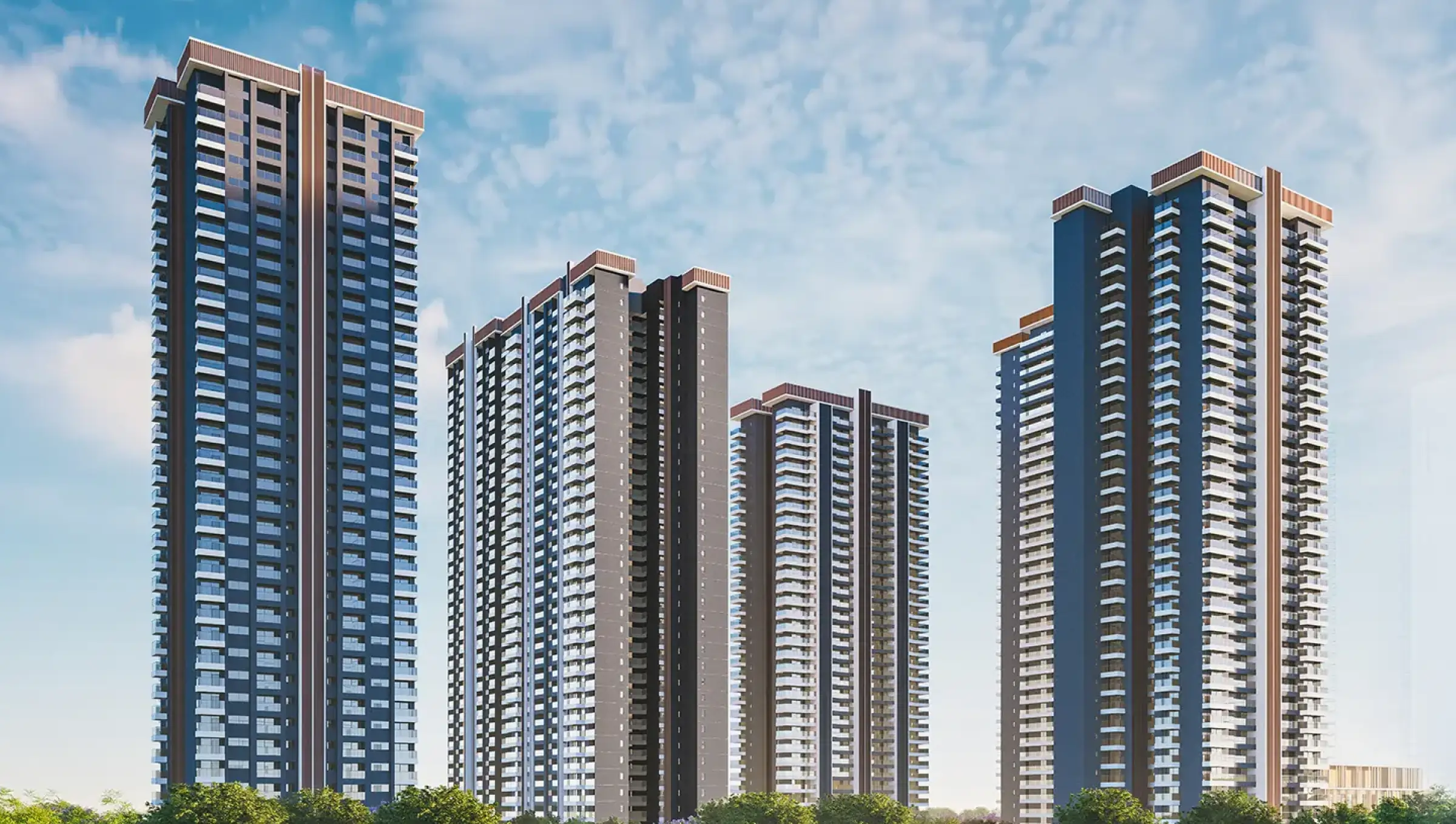Where to Invest: Residential or Commercial Property
Andrew Carnegie, a Scottish-American industrialist and philanthropist, said that “90% of all millionaires become so through owning real estate.”
It is evident that real estate is a strategic move towards wealth building. Investors are drawn to this sector because of its short-term and long-term financial gains, rental income, and getting value of these tangible assets in many other forms.
The 2020 Coronavirus pandemic hit the economy hard and likewise the real estate market got affected and the investment depleted by leaps & bounds but since the economy’s advancement towards investment, the commercial spaces have seen a surge. In fact, new concepts of data centres, REITs, and co-working spaces have emerged and are booming. Similarly, residential investment has also improved.
In fact, The government has also made significant contributions to help boost investment in the real estate Noida region as well. In this blog, you will understand the nuances of where to invest, which among residential or commercial is a lucrative option for you to make an informed decision in 2024.
Residential Vs Commercial Real Estate
History is proof that Indians are wise investors. For us, real estate investment is an attractive option to multiply the wealth and also pass onto our generations. Over the years, more and more people are widening their options and also considering either residential or commercial properties. But it also raises an important question, “which is better from an investment standpoint”?
Residential Real Estate
A Residential property is the one that is used for living purposes, for instance, houses, plots, condos, townhomes, multifamily homes, etc. These properties are an absolute favorite among Indian investors due to its stability and consistent demand. Residential properties are in constant demand due to the necessity for shelter, which makes them a dependable source of rental revenue. Furthermore, first-time investors find these deals easier to navigate due to their simplicity.
Studies have shown that by 2024, the Indian residential real estate industry is expected to be worth 35.47 trillion USD and by 2028, this market is predicted to have grown at a compound annual growth rate of 2.97%, with a total market value of 39.88 trillion USD. These stats indicate growth and this is happening due to the growing middle class and government programs supporting affordable housing that drive up demand for residential real estate in India.
Commercial Real Estate
A Commercial property is the one which is used exclusively for business purposes, for instance offices, hotels, gas stations, grocery stores, hospitals, hotels, parking lots, restaurants, and many others. These properties are more popular among businessmen. Although, over the years, commoners are also drawn towards them due to their high rental income and hassle-free tenantship. But investing in commercial real estate comes with its high risks and it demands a deep and complex understanding of market dynamics.
According to research, by 2024, the Indian Commercial Real Estate Industry is expected to reach a valuation of INR 5.47 trillion USD. This forecast illustrates the industry's enormous potential and growth prospects in the nation due to their profitable long-term benefits, such properties are becoming more and more attractive among local and NRI investors. These properties have long-term leases and yearly rent increments, thus making them appealing investment options. These characteristics guarantee a steady stream of revenue for a longer duration of time.
Things to Keep in Mind Before Investing in Residential or Commercial Properties
Residential and commercial properties, indubitably, come with its pros and cons. With diligent market research, you can make a more informed decision and match with personal objectives. Moreover, investors strategically position themselves to maximize returns in the ever-changing real estate landscape. Here are some of the factors that you must consider while making such a decision:
1. Goal and Purpose
Investment is an incredibly personal decision and evaluating its purpose is the first and foremost step. Take into account variables including your risk-adjusted returns, projected rental income, property value, and prospective tax benefits. While residential properties provide more stability and have a bigger pool of tenants, commercial assets usually produce better rental revenue.
2. Short and Long Term Gains
Residential Real Estates comes with a higher number of renters, hence, it provides immediate rental revenue. On the other hand, Commercial Real Estate have longer and binding leases, even exceeding up to 10 years and/or more. Although they might not draw revenue immediately, they are sure to compensate with much higher gains in the long term.
3. Financing and Affordability
Investment, for many people, can be daunting due to the demand for liquid cash flow. In such situations accessing your current inflow of income and the ability to obtain loans is imperative. For individual investors and families, residential properties could be more accessible and inexpensive. On the other hand, commercial properties are related to higher down payments and more stringent lending requirements. Thus, it is advisable to examine your financial situation, evaluate possible returns and choose a property type that fits your spending limit and level of investment expertise.
4. Economic Indicators and Market Trends
Evaluating economic factors such as GDP growth, interest rate, loan policies, inflation, employment rates, etc. is also vital before setting your mind to choose between residential and commercial estates. These factors would affect both in different ways, for instance, if inflation rises it is expected that there will be a significant surge in commercial properties but it will hit the economy and hence the employment rates are bound to go down, leading to a steady purchase of residences.
5. Risk and Return
Under the risk factor, there are usually two things to consider, one, how much risk you can endure and the second, which property to invest in to avoid risks. Longer vacant periods, economic instability, and tenant turnover all contribute to the heightened risk associated with commercial estates. They may, however, provide larger rental income and substantial capital growth. When opposed to commercial investments, residential properties often offer more stability and continuous demand, although the profits could be smaller.
Conclusion
The discussed factors indicate that investment is a personal decision. A number of aspects need to be carefully considered when deciding between residential and commercial real estate investments. Commercial properties provide the possibility of larger profits while residential homes provide stability and steady demand. In the end, the choice should be in line with your investing objectives and risk tolerance.
Moneytree, a real estate advisory industry leader of India helps you to evaluate all these factors as well as guide you to align your personal goals with the right investment choices.





















